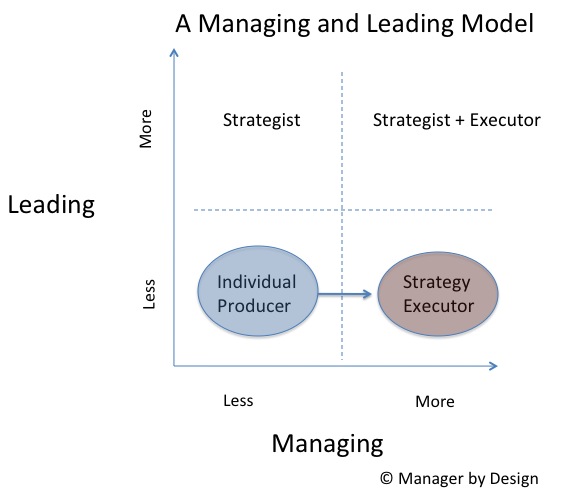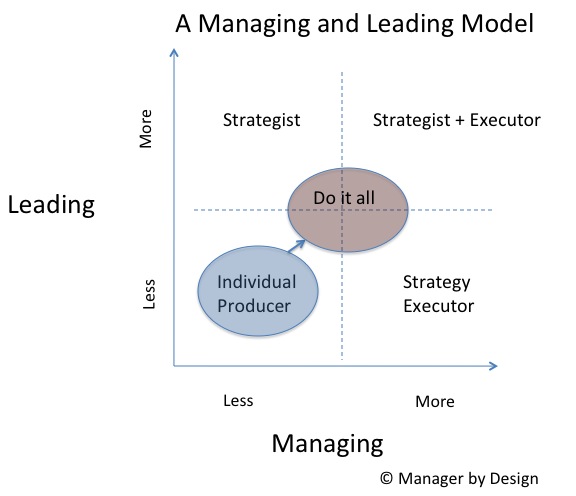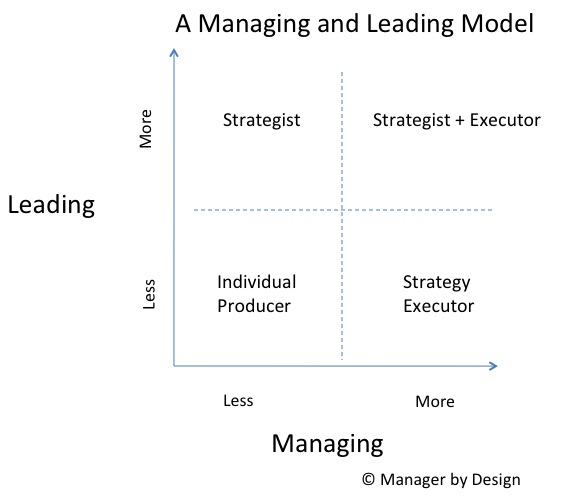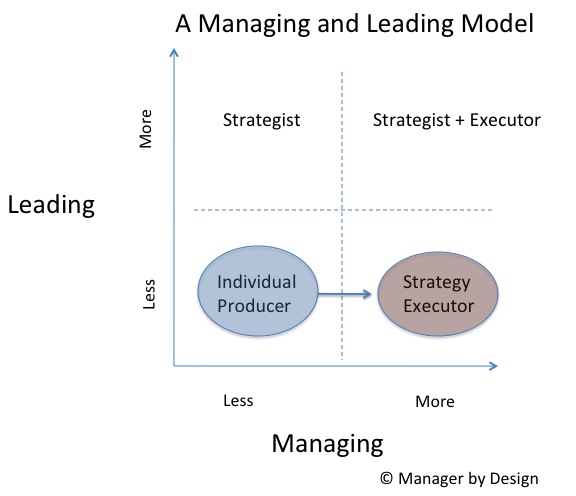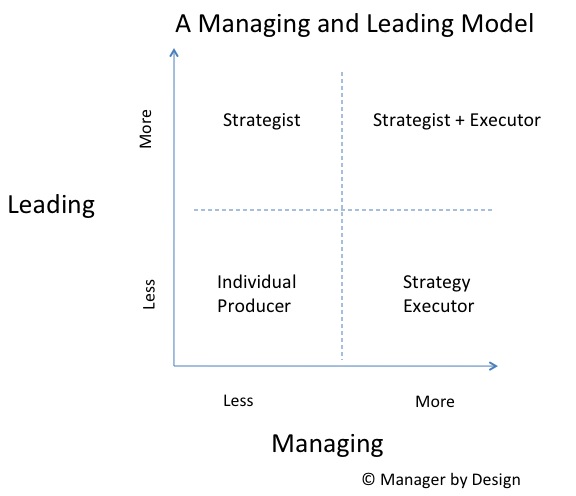Management Design: The Designs we have now: Part time strategist, part time manager
In my previous article, I discuss a management/leadership model I developed that shows how managers are resistant to changing strategies, and this is often by poor design. Here’s how it looks:
Even though this is a common path for people to become managers, there is a design flaw for those organizations that change their strategy. The managers are focused on and understand a single strategy, and, in this visualization, aren’t involved in, or aware of possible other strategies that follow.
Now lets look a slightly different path that is also common:
I call this the “do it all” scenario. It kind of makes sense, as you can see that when someone gets promoted from an individual producer role to a manager role, they are then required to show leadership, which involves developing strategy skills as well as people management skills.
Management Design: The designs we have now – Manager knows and supports only one possible strategy
In my previous article, I showed a model I created that identifies the difference between being a leader and a manager. Here it is:
In this model, the manager that I typically think of when writing about managers is in the lower right corner – a manager who is a “Strategy Executor.” The organization that the manager works for has a strategy, and the manager makes sure that this strategy is executed. This manager typically has a team of people in some capacity (either direct reports, virtual, outsourced vendor) to make sure the strategy is executed.
As an example, if you are a Training Manager, then the strategy is that the organization is using “Training” as a means to help the organization run better. “Training” is the Strategy, and the Training Manager is needed to execute that strategy.
So the training manager has to make sure the training is executed. That means there needs to be budget, a team of people and facilities to get this done somehow. That’s the manager’s job – use these resources to execute the “Training” Strategy.
But how does one become a strategy executor, a.k.a., manager? There are various paths.
The most commonly thought of path is the following:
- Someone is really good at being an individual producer, and the manager role opens up, and they get the job as the manager. That individual producer is now the strategy executor. Here’s how it looks on the model:
This seems to fit in the popular conception of how people become managers, but under this model, you can see a potential design flaw. The person becomes a manager without having been involved with the strategy development. In the case of the Training Manager, the strategy executor will be executing the “Training Strategy” without really knowing what went into the development of that strategy.
A model to show the difference between managing and leading
The Manager by Design blog seeks to provide great people management tips and awesome team management tips. The focus of the blog is on management, but the question is – what is the difference between leadership and management? There are hundreds of great books on leadership, and there are many resources that work to delineate the difference between managing and leading. For there purposes of this blog, here is the model I have that demonstrates the difference between managing a leading.
Let’s take a look at the model:
In this model, I’ve put out a grid that puts managing on the x-axis and leading on the y-axis to demonstrate their inter-relationships and where they separate.
In the lower left quadrant (“Individual Producer”), you have a role that requires neither managing nor leading. I call it the individual producer. If that individual producer produces something (analyses, a product, a sale), then that person has done her job, and is doing well at the job. This person is neither managing nor leading, but still producing, and contributing. Every organization needs lots of this!
